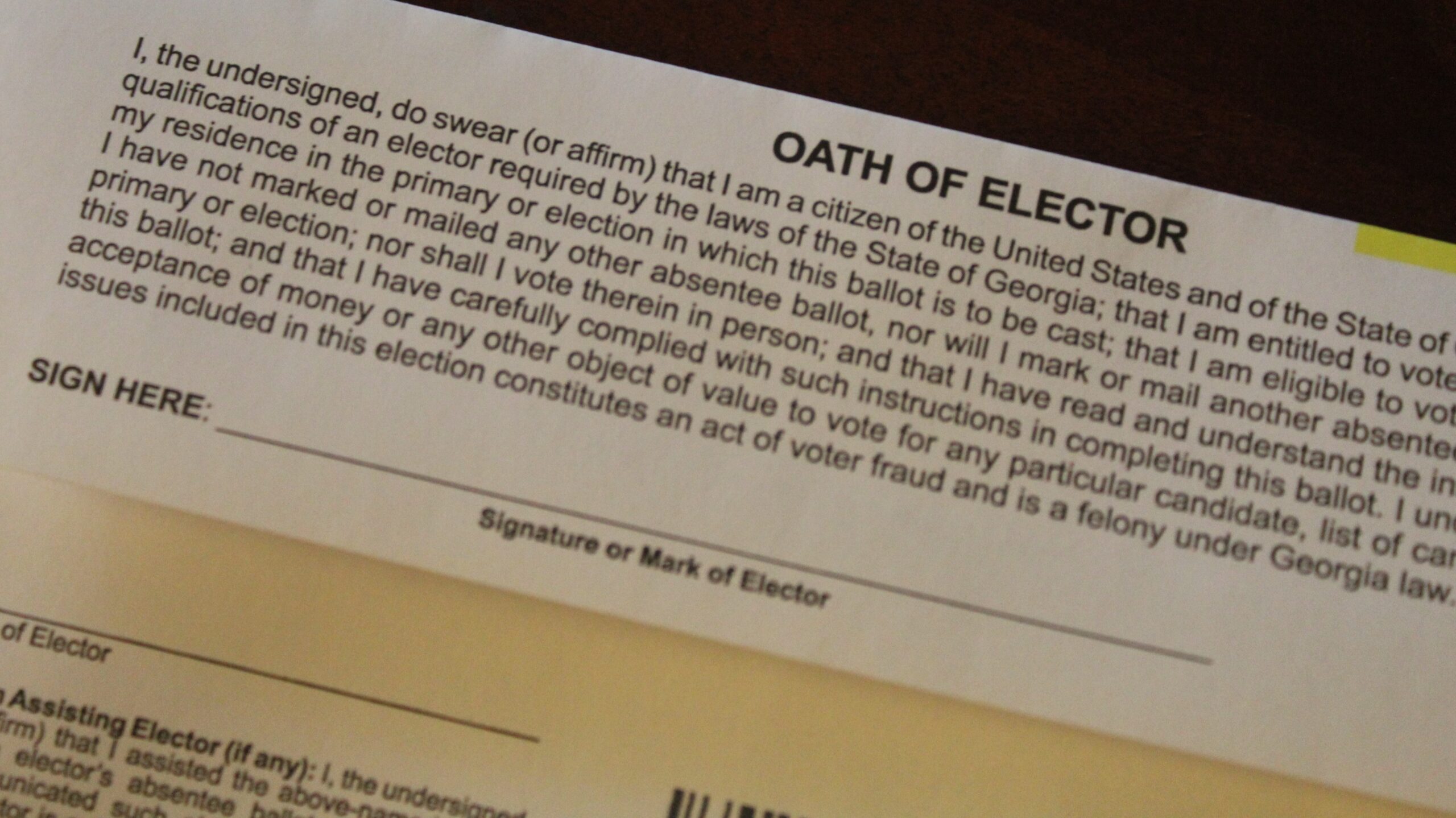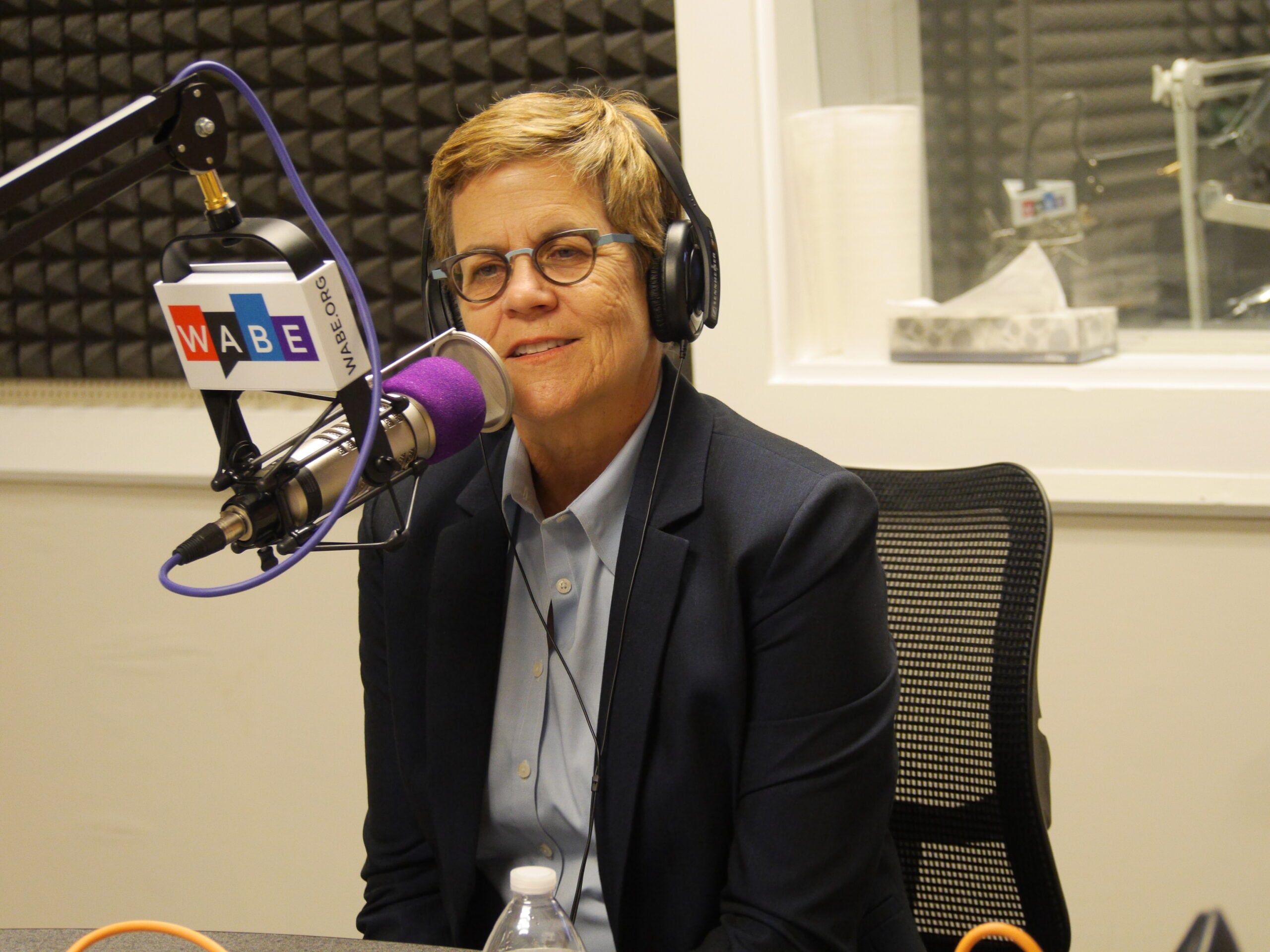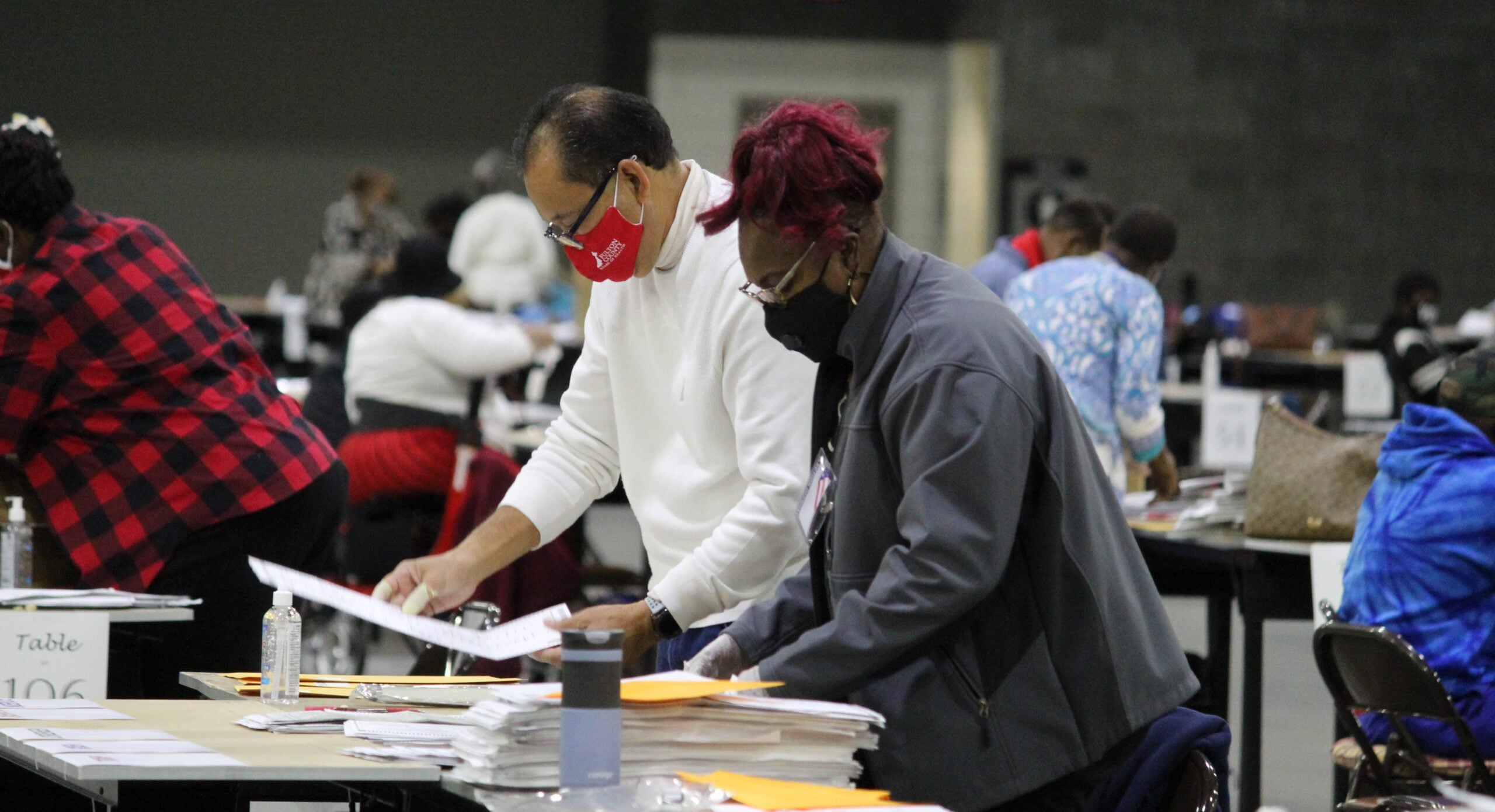Of the more than 1.3 million absentee ballots returned to county elections offices for the November election, more than 2,000 of them were rejected because of an invalid or missing signature.
That’s the same signature rejection percentage as the 2018 mid-term election in which more than a million fewer absentee ballots were submitted.
President Donald Trump on Thursday morning made a misleading claim that “almost ZERO ballots” were rejected in Georgia in the November election.
Trump’s statistic that 4% of ballots were rejected in past elections may be true, but it also includes a larger number of absentee ballots that were rejected because they arrived after the 7 p.m. Election Night deadline, not because of signature issues.
Signature Match Procedure
There are two signature matches required to vote by absentee ballot in Georgia.
The first comes when a voter requests an absentee ballot and must sign that application. If they request one using the new online portal, a photo ID must be uploaded.
Voters must then sign the outer envelope that accompanies each ballot. This signature is matched against the absentee ballot application and the voter’s registration application. Counties can also match against signatures on file with the Department of Drivers Services.
Once the signature is matched by elections workers or officials, the ballot and the outer envelope are separated, leaving no personally identifiable information on the ballot itself. That is in order to preserve the secret ballot, and make sure a voter’s choices are not tied back to a voter’s identity.
No signature matching is required during the audit or recount process.
So, President Trump’s demand that signature match be a part of the audit process, would be impossible, because the signatures and ballots have already been separated
Georgia law requires counties to reach out to voters whose signature is rejected to allow them an opportunity to “cure” or fix their signature by providing ID or filling out an affidavit no later than three days after the election.








